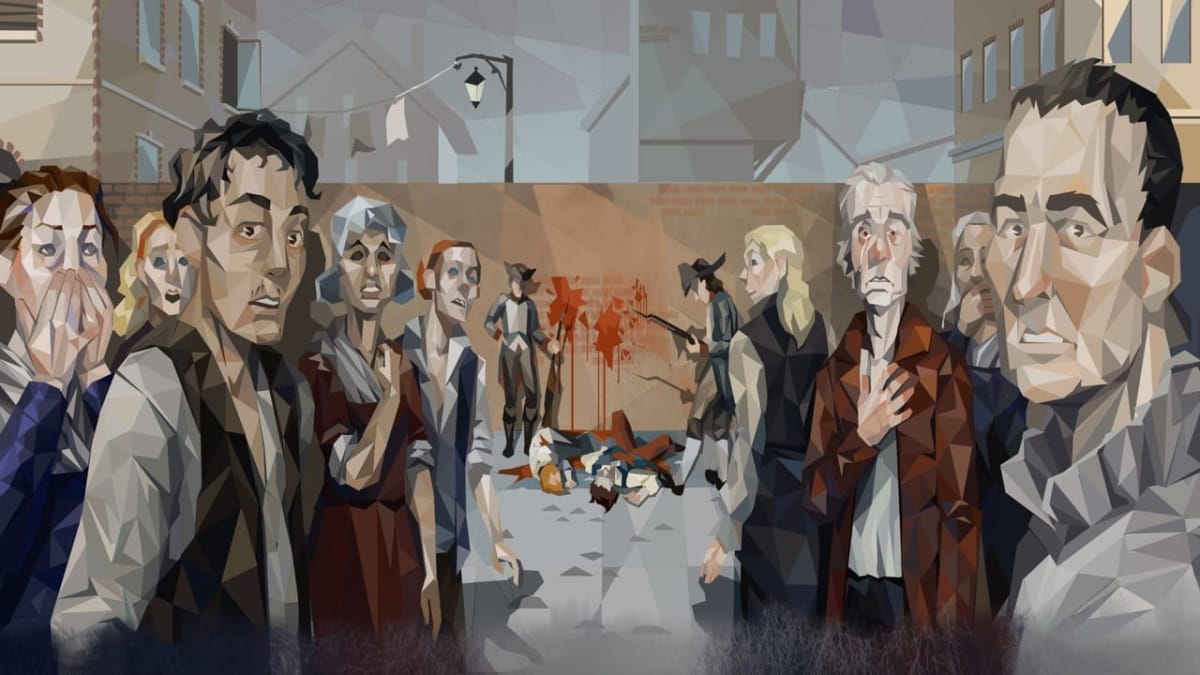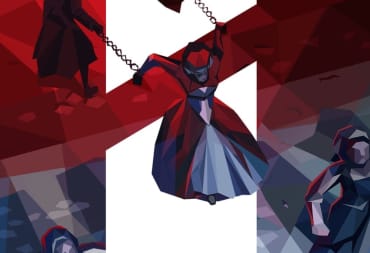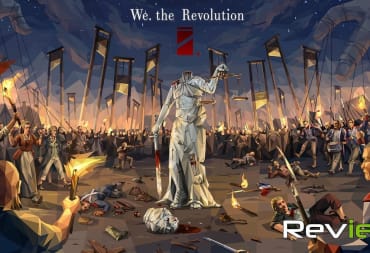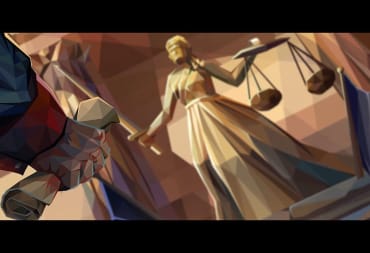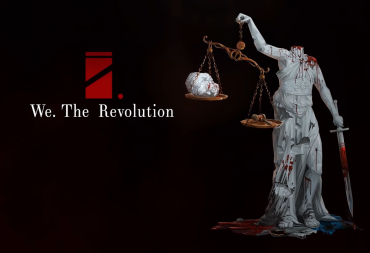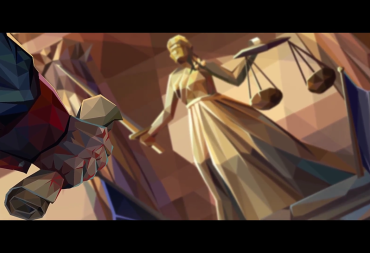The French Revolution was a time marked with executions, revolt, and violence. Yet, one part that some might overlook is the humanity of it. The courtroom drama, the decision of life or death, and the political intrigue. It's all-inclusive in We. The Revolution, an upcoming strategy game from developer Polyslash and publisher Klabater.
Players take the role of a judge during the French Revolution. The main character, Fidéle, presides over courtroom cases and decides who is guilty or innocent. Fidéle can read over clues and question witnesses to determine a verdict. Fidéle must also manage his life at home, and there are turn-based tactic elements within the gameplay as well.
We talked with We. The Revolution's director, Dawid Ciślak, and discussed the development process of this title's unique and enthralling gameplay.
Changing the Scope
The scale of the project evolved throughout development. Originally, the scope was smaller than the finished project. Polyslash started to focus on just courtroom drama, but Ciślak says things changed during development:...I soon realized that said drama’s greatest strength and interest come from the outside - from the context of what surrounds it: the city of Paris, and the rest of France. There is no Revolutionary Tribunal without people who demand that enemies of the state, credible or not, be executed.He says that the morality of your decisions comes from looking at all the different factors. During a revolution, there are plenty of events going on both inside and outside of the courtroom. Because of this, they decided to include gameplay including drama within Fidéle's family and the ability to tactically manage units on a map of Paris.
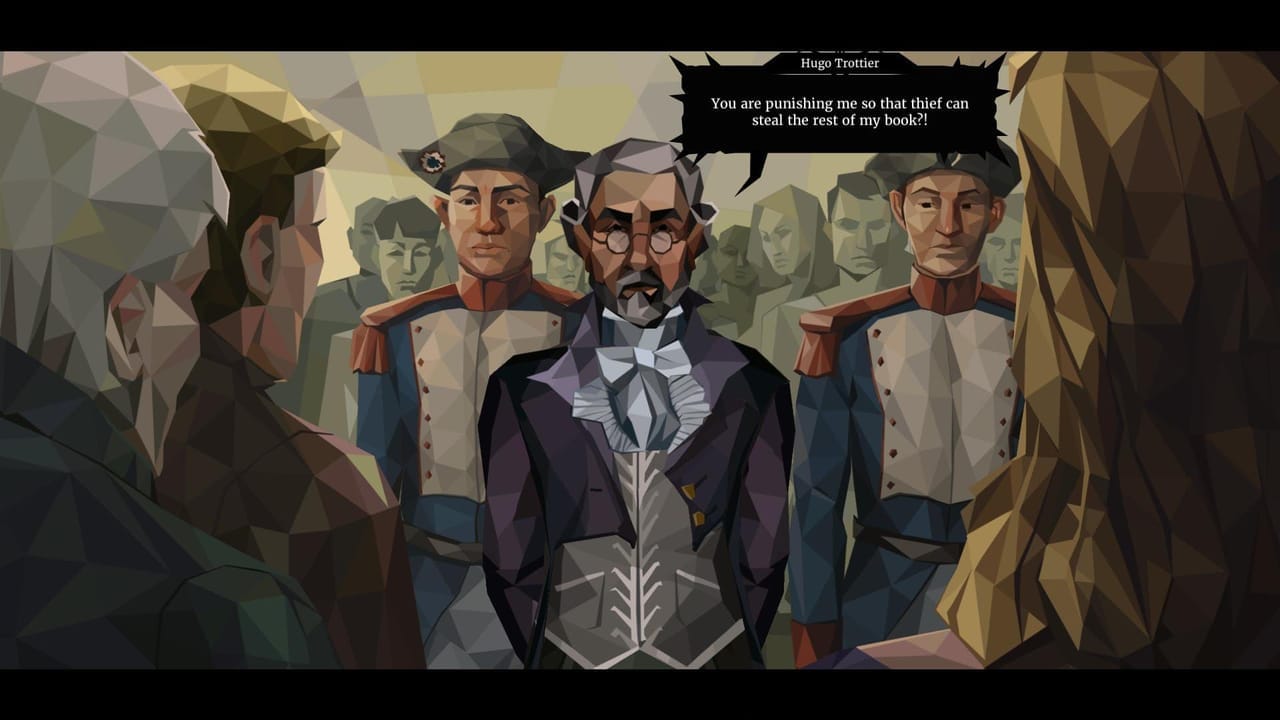
Gameplay elements were tweaked throughout the development process, par for the course. "Some of the minigames and tactical map solutions looked different in early development," said Ciślak. "Tactical battles were a bit simplified, but after the preview phase it turned out that gamers expect something deeper and more meaningful." Other decisions such as making the courtroom's evidence wheel less confusing helped create quality gameplay.
Objection!
How cases play out in court is arguably the most important part of We. The Revolution. Fidéle, the player's character, typically begins by reading over documents and gaining an understanding of the upcoming case. Then, Fidéle questions witnesses and defendants. Lastly, you as the player must come up with a verdict.Here’s the tricky part - before you do that, it is wise to take into consideration the opinions of the Jury and certain factions in the game, who watch you constantly and try to influence your judgements.We. The Revolution tests your ability to be a good judge. Critical reading is key. A hasty and reckless player will soon understand their faults. "After you come up with the final verdict," said Ciślak, "you will fill a special report for the revolutionary prosecutor. This mechanism, beside being part of game’s narrative, was also meant to check the player’s knowledge of each trial - and this comes only with critical reading."
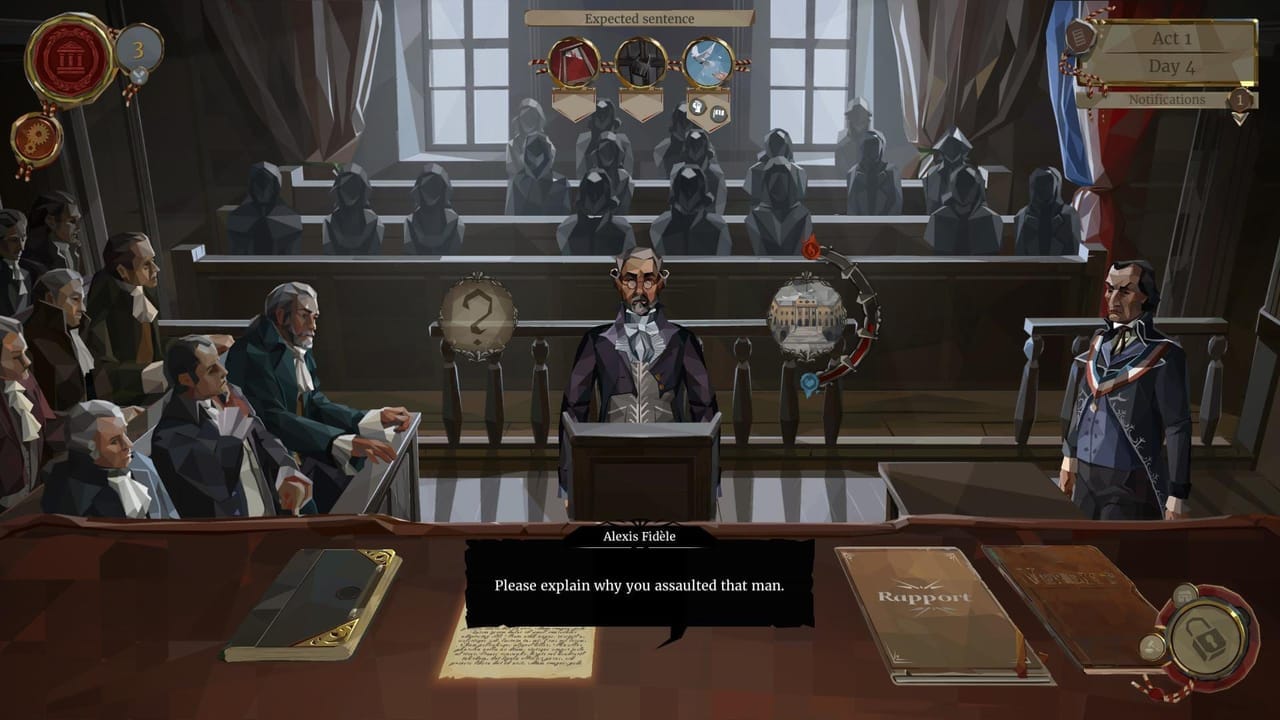
Although reading carefully and thoroughly is critical to success, Polyslash was sure to keep the gameplay interesting for those who are less inclined to combing over text. "Whenever we felt that the player might be a bit tired with solving court cases," said Ciślak, "we decided to include other solutions, like family relations management or tactical battles." Court cases are long and arduous processes, after all. Ciślak says the team was sure to include shorter ones that might not be the most difficult thing ever, but require you to make "quick and irreversible decisions."
Although not every single choice made by the player matters, many do, and they have weight. "And they’re mostly quite difficult," said Ciślak. "The weight of these decisions is the result of carefully balancing gameplay and story, which form a feedback loop with each other."
Outside the Courtroom
Two results of We. The Revolution's change in scope are Fidéle's life at home and turn-based elements. Polyslash approached the familial portion of the gameplay as a choice. "In our reality," said Ciślak, "family isn’t a 'chore' dumped on you when you are young and carefree. It’s your choice, and that’s the approach we take - spending time with your family doesn’t come with a scoreboard."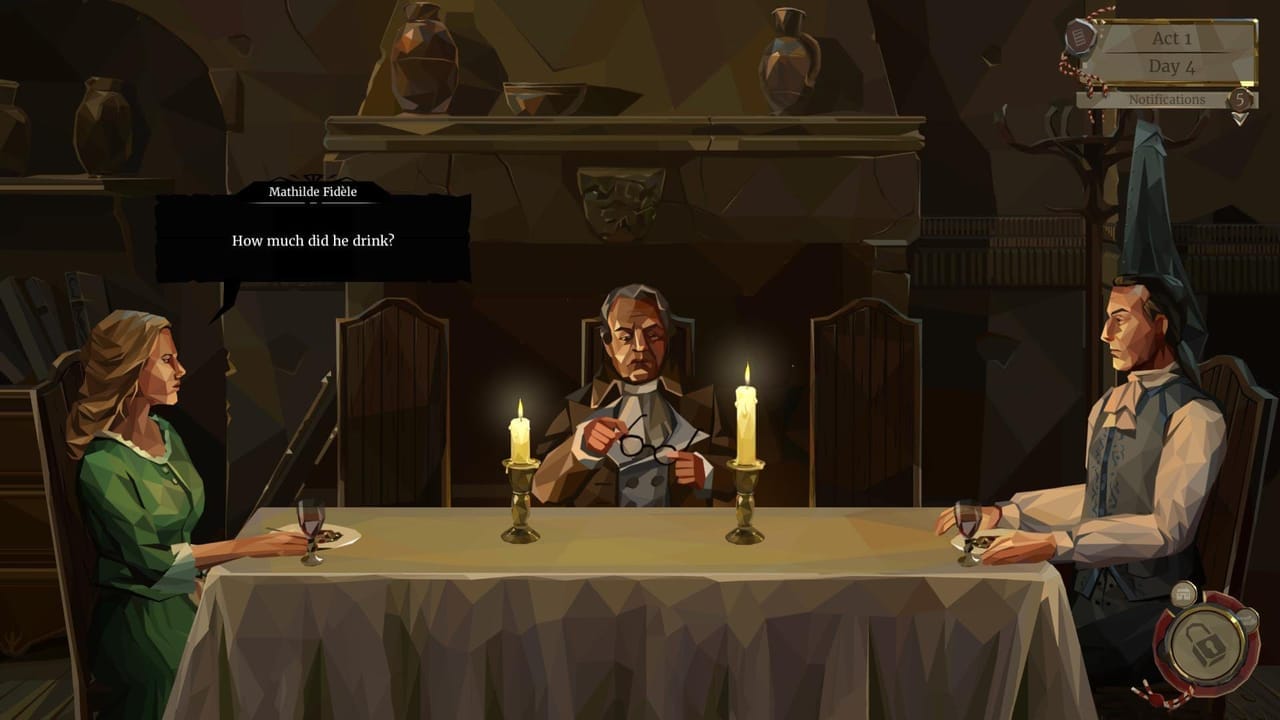
This means that while interacting with Fidéle's family is up to the player, it is only supplemental to the gameplay. It will, however, perhaps alter the player's perception or appreciation of the story if they fully experience what family life has to offer. According to Ciślak:
Perhaps some players will think that it would be easier to play without it, that it would be easier to exist in the story’s world? And that’s one more layer of interpretation of our game - if you dedicate your life to fighting for power, sooner or later you will see that the most precious thing you have has turned in your mind into a burden that stands between you and your goal. The challenge, then, doesn’t come from “getting a high score,” but from keeping a balance.As for the turn-based gameplay, Ciślak says that it lingers in spoiler territory to delve fully into the details. He says that the main challenge is choosing "the tactic best for counteracting the situation and the enemy's troops." However, Polyslash has given the choice to allow battles to automatically play out in order to cater to players' preferences.
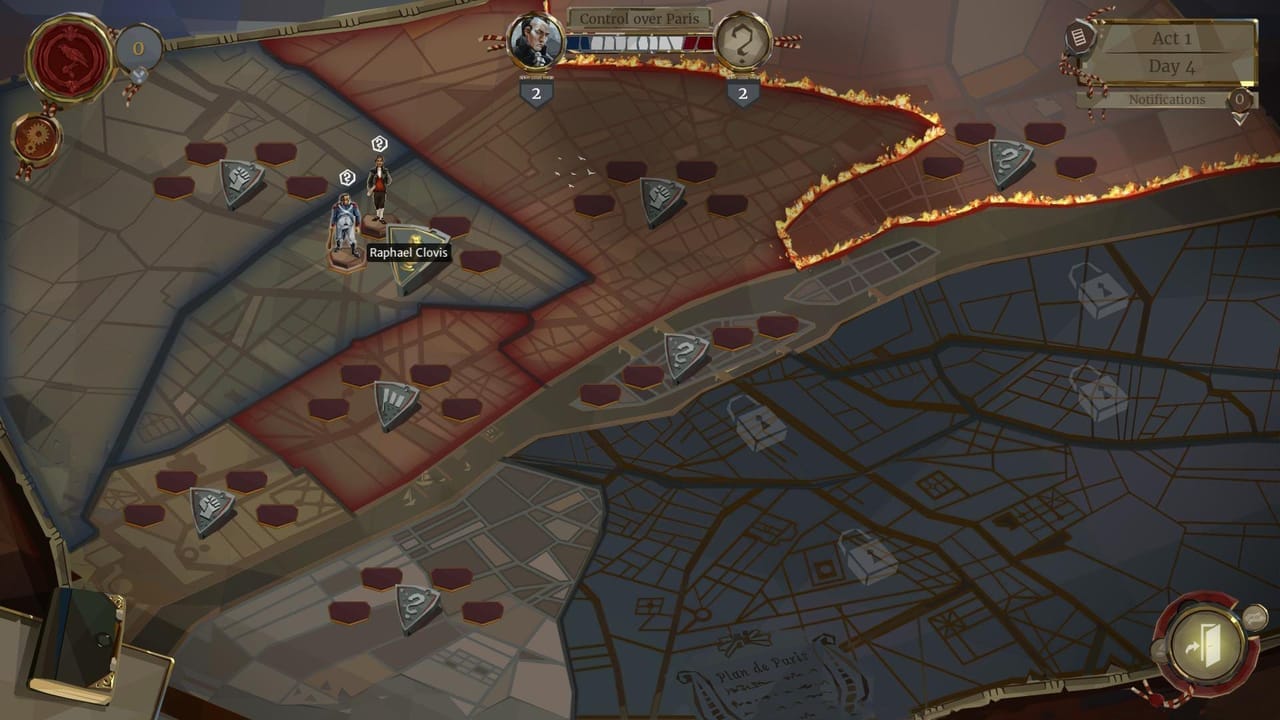
Intersection of Story and Gameplay
It can be a challenge to strike a fine balance between a game so heavily invested in its narrative and maintain interesting gameplay. "I didn’t want an untethered story floating separately from the gameplay," said Ciślak, "which is a problem in a lot of games right now." Polyslash had to determine how historically accurate they wanted the game to be (the final product is not a complete retelling of historical events) and keep the team's ambitions in check. He continued:We never had any problems our team couldn’t overcome with their mixture of talent and professionalism. Concepts changed often, especially after receiving feedback from media and gamers, but at the end we have a pretty nice balance here, I think.The most challenging part in creating We. The Revolution was keeping everything linked and making it all feel meaningful. Ciślak has great confidence in his team and We. The Revolution's success in achieving that goal. "I think that thanks to every team member giving their best," said Ciślak, "and pouring their heart into the game we created something that isn’t just a sum of its mechanics, but a true visual experience that will stir emotions on the players."
Have a tip, or want to point out something we missed? Leave a Comment or e-mail us at tips@techraptor.net
